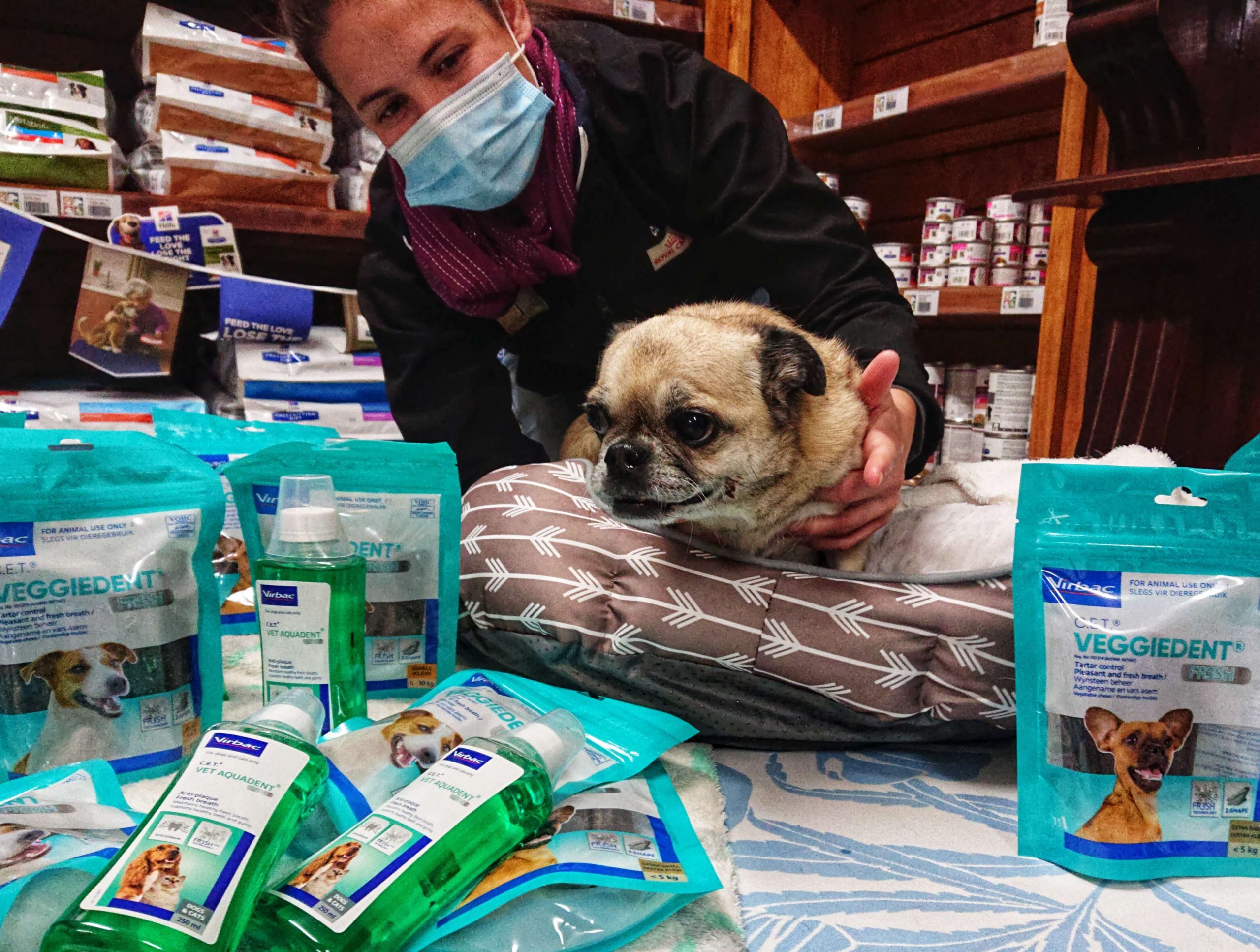Dental disease is a reality. Keeping your pet’s teeth clean is important to their overall health. Imagine how your teeth would look and feel if you didn’t brush them for years, or even just a few weeks!
Ever since cats and dogs became domesticated, their natural source of “dental floss” and teeth cleaning has been mostly removed from their diet. Canned and dried foods, the nutritional replacement for your pet’s traditional diet, does not provide the same level of oral hygiene.
Dental Disease
Dental disease is an infection of the teeth, gums and surrounding structures. It is by far the most common major health problem of cats and dogs.
It starts with a build-up of plaque which eventually turns to tarter. This quickly forms small pockets where an animal’s gums meet its teeth. The gums can separate from the tooth and this allows more bacteria and food to accumulate. This build-up leads to periodontal disease. These pockets allow bacteria to enter the bloodstream. If left untreated, it will lead to more serious health problems like heart and kidney disease
Symptoms of Dental Disease
Symptoms of dental disease include bad breath, lethargy, inactivity or depression, poor grooming, excessive salivating, inflamed gums, decreased or loss of appetite and weight loss. Other issues include dropping food while eating, facial swelling, discharge from the nose or eyes and pawing at the face. Sometimes the teeth just become so rotten that they become loose and fall out on their own!
The key to managing dental disease is prevention. Regular oral examinations and dental cleanings are recommended for all adult dogs and cats.
Daily tooth brushing is the best way to slow the onset of dental problems. Feeding dry dental diets or dental chews may slow down the development of recurrent periodontal disease, but it will not completely prevent it. Daily use of products like oral gels and rinses may aid in keeping your pet’s teeth and gums clean and healthy.
For more information on brushing your pet’s teeth, talk to one of our stellar veterinarians or reception staff about developing a dental care plan for your furry friend.


